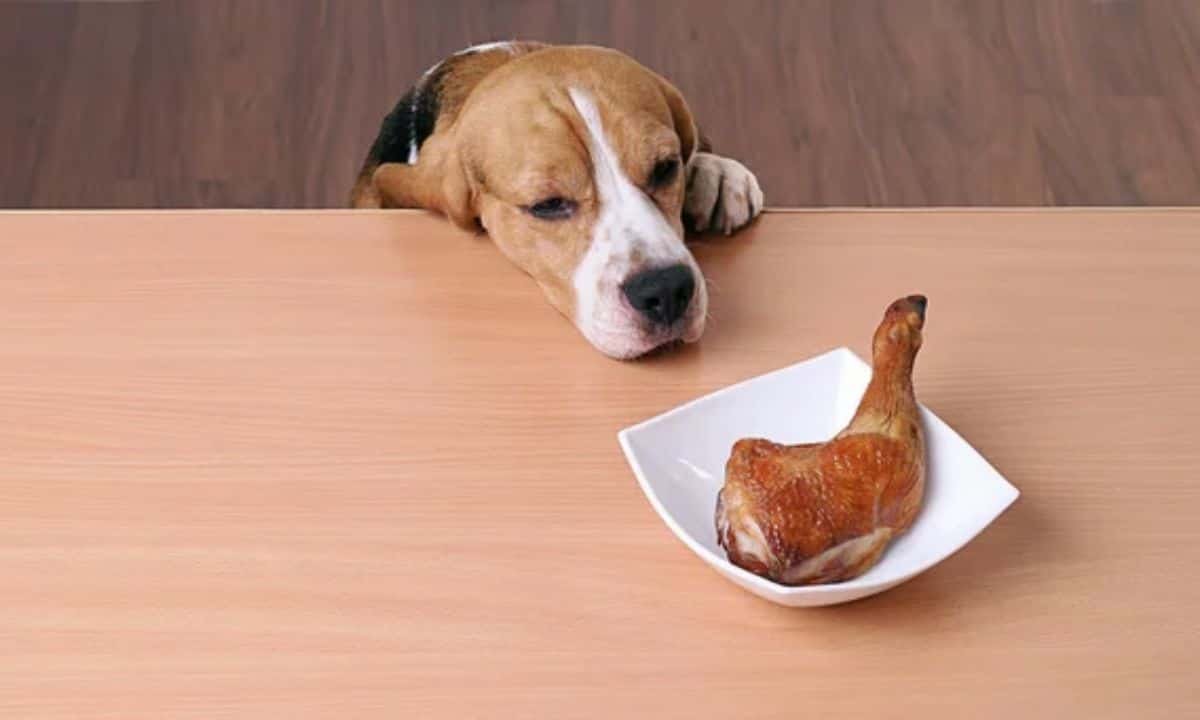As a dog owner, ensuring the safety and well-being of your furry friend is paramount. However, accidents can happen, and one common concern is what occurs if your dog consumes bad chicken. Understanding the potential risks, recognizing symptoms, and knowing the appropriate treatments can make all the difference in safeguarding your pet’s health. This comprehensive guide will explore the effects of eating spoiled chicken, how to identify signs of food poisoning, and preventive measures to protect your beloved pet.
The Dangers of Bad Chicken
Bacterial Contamination
Spoiled chicken can be a breeding ground for harmful bacteria like Salmonella and Campylobacter. These bacteria can cause severe gastrointestinal issues in dogs, ranging from mild discomfort to serious illness.
Toxin Production
As chicken spoils, it can produce toxins that are harmful to dogs. These toxins can lead to food poisoning, causing a variety of uncomfortable and potentially dangerous symptoms.
Nutritional Degradation
When chicken spoils, it loses its nutritional value. Even if your dog does not get sick immediately, they are not receiving the necessary nutrients they would from fresh meat, impacting their overall health over time.
Signs of Food Poisoning in Dogs
Recognizing the symptoms of food poisoning in your dog is crucial for timely treatment. Here are the most common signs to watch for:
Vomiting and Diarrhea
One of the first indicators of food poisoning is vomiting and diarrhea. These symptoms show that your dog’s body is trying to expel the harmful substances.
Loss of Appetite
A sudden refusal to eat can be a sign of food poisoning. A lack of appetite often accompanies gastrointestinal distress.
Lethargy
A normally energetic dog that suddenly becomes lethargic may be experiencing food poisoning. This lack of energy is due to the body’s effort to fight off the toxins or bacteria.
Fever
A fever is a common response to infection. If your dog feels warm to the touch or is panting excessively, they may have a fever due to food poisoning.
Abdominal Pain
Dogs with abdominal pain may whine, act restless, or adopt a hunched posture. This discomfort is another key indicator of food poisoning.
Immediate Actions if Your Dog Eats Bad Chicken
Assess the Situation
Try to determine how much bad chicken your dog has consumed and how long ago they ate it. This information will be helpful when consulting a veterinarian.
Contact Your Veterinarian
Always contact your vet if you suspect your dog has eaten bad chicken. They can provide specific advice based on your dog’s health history and the severity of the situation.
Monitor Symptoms
Keep a close eye on your dog for any of the symptoms listed above. Note the onset and severity of symptoms, as this will help your vet make an accurate diagnosis.
Provide Plenty of Water
Ensure your dog stays hydrated, as vomiting and diarrhea can quickly lead to dehydration. Fresh, clean water should always be available.
Withhold Food Temporarily
Sometimes, it’s best to withhold food for 12-24 hours to allow your dog’s gastrointestinal system to settle. However, always consult your vet before doing this, especially with puppies or dogs with underlying health issues.
Treatment and Recovery
Veterinary Care
In many cases, professional veterinary care is required. Your vet may recommend treatments such as fluids to prevent dehydration, anti-nausea medication, or antibiotics if a bacterial infection is present.
Home Care
Follow your vet’s advice for home care. This might include feeding your dog a bland diet (like boiled chicken and rice) once they are ready to eat again, and gradually reintroducing their regular food.
Rest and Comfort
Ensure your dog has a quiet, comfortable place to rest and recover. Minimize stress and give them time to heal.
Preventing Food Poisoning in Dogs
Safe Food Handling Practices
Proper food handling can prevent many cases of food poisoning. Always store chicken at the correct temperature, cook it thoroughly, and avoid leaving it out where your dog can access it.
Supervise Your Dog
Keep an eye on your dog, especially when they are in areas where they might find and eat spoiled food, such as the kitchen or trash.
Regular Check-Ups
Regular veterinary check-ups can help catch any health issues early and ensure your dog’s immune system is strong enough to handle minor food-related illnesses.
Educate Yourself
Understanding the basics of canine nutrition and what foods are safe for your dog can go a long way in preventing food-related illnesses. Reliable sources like the American Kennel Club (AKC) and the American Veterinary Medical Association (AVMA) offer valuable information on pet care.
Conclusion
Knowing what can happen to a dog if he eats bad chicken is essential for any pet owner. From bacterial contamination to the symptoms of food poisoning, understanding these risks allows you to take prompt action to protect your dog’s health. Always consult your veterinarian if you suspect your dog has eaten something harmful, and practice safe food handling to prevent such incidents. By staying informed and vigilant, you can ensure your furry friend stays healthy and happy.




